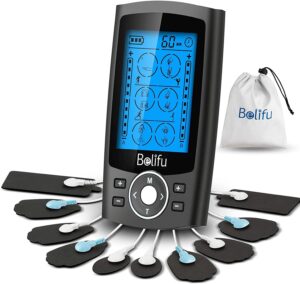Discover what triggers fibromyalgia attacks and how to avoid them. Learn practical tips to manage flares and protect your health with lifestyle changes, stress relief, and smart habits for seniors and caregivers.
Fibromyalgia causes widespread pain, fatigue, and a foggy brain, and once it lands in your orbit, relief is all that you are looking for!.
For seniors, it is especially tricky because the condition doesn’t just affect you physically; it messes with your daily life. Surprisingly, many fibromyalgia flares can actually be managed or even avoided with a little know-how.
If you have ever wondered what triggers fibromyalgia attacks or how to reduce them, you’re not alone. Seniors and their caregivers often deal with this invisible illness, so let’s dig into the common triggers and how to sidestep them. Trust me—relief is possible!
What is Fibromyalgia?
To address fibromyalgia, you first of all need to understand what it is.
It is a chronic condition characterized by pain all over the body, fatigue, and a heightened sensitivity to touch, often accompanied by sleep disturbances, memory issues (“fibro fog”), and mood changes.
Although the exact cause is unclear, it is believed to result from changes in how the brain processes pain signals, amplifying sensations.
Triggers like stress, illness, or injury can worsen symptoms or cause flare ups. It is more common in women and often coexists with conditions like arthritis or irritable bowel syndrome (IBS).
While there is no cure, managing fibromyalgia involves lifestyle changes, medications, and therapies aimed at reducing symptoms and improving quality of life.
What Triggers Fibromyalgia Attacks? 7 Big Culprits
Fibromyalgia flares don’t just happen out of thin air. They are often caused by specific triggers that make the symptoms worse. Here are the main ones:
Stress and Emotional Strain
Ever notice how stress can make everything feel worse? Stress, whether it’s from financial worries, family conflicts, or even holiday planning, can trigger fibromyalgia flare-ups. Why? Emotional strain puts your body in fight-or-flight mode, which can amplify pain sensitivity and fatigue.
Practical Tip: Try relaxation techniques like deep breathing, meditation, or even gentle yoga. Apps like Calm or Headspace can be lifesavers for managing emotional stress and fibromyalgia.
Lack of Sleep
Fibromyalgia and good sleep? Yeah, they’re not exactly besties. Sleep deprivation worsens pain and leaves you feeling like you’ve been hit by a truck. Poor sleep also impacts your energy levels and mental clarity.
Practical Tip: Establish a bedtime routine: dim the lights, turn off electronics, and use a weighted blanket for relaxation. Quality sleep makes a huge difference in preventing fibromyalgia flare-ups.
Overexertion and Exercise Intolerance
Ever push yourself too hard on a good day, thinking, “I’ll just power through”? Yeah, that’s a rookie mistake with fibromyalgia. Overexertion—whether it’s too much exercise, housework, or errands—can lead to an attack.
Practical Tip: Focus on low-impact activities like walking or swimming. Pacing yourself is key. Listen to your body and rest before you feel exhausted.
Weather Sensitivity
For many seniors, changing weather feels like Mother Nature’s way of playing a cruel joke. Cold weather, humidity, or sudden barometric pressure changes can worsen fibromyalgia pain triggers.
Practical Tip: Dress in layers and keep your home at a comfortable temperature. Using a heating pad or warm bath can help soothe achy muscles during weather-related flares.
Diet and Food Triggers
Did you know certain foods can be fibromyalgia triggers? Processed foods, sugary snacks, and even caffeine might be messing with your system. For some, gluten and dairy can worsen inflammation, too.
Practical Tip: Keep a food journal to spot patterns. Opt for an anti-inflammatory diet rich in leafy greens, berries, nuts, and lean protein. Don’t forget vitamin D and calcium to strengthen bones!
Sensory Overload
Loud noises, bright lights, and crowded places can make fibromyalgia symptoms go haywire. Sensory overload is especially tough for seniors who might already have sensitivities.
Practical Tip: Avoid overstimulating environments when possible. Noise-canceling headphones or soft lighting can help reduce discomfort.
Preventing Fibromyalgia Flare-Ups: Tips for Daily Life
Now that we know what triggers fibromyalgia attacks, let’s focus on prevention. These small adjustments along with the practical tips under the trigger section can make a big difference:
Pace Yourself
Balance activity with rest. Doing too much, even on good days, can backfire. Use the “20-10 rule”: work for 20 minutes, rest for 10.
Create a Fibro-Friendly Home
- Remove clutter to avoid falls (especially for seniors with osteoporosis)
- Use ergonomic furniture to reduce strain on your muscles.
- Invest in soft bedding and adjustable mattresses.
Stay Hydrated
Dehydration can make chronic fatigue and fibromyalgia worse. Aim for at least 8 glasses of water a day.
Prioritize Mental Health
Counseling or support groups can help seniors and caregivers cope. Talking things out can reduce emotional stress and fibromyalgia symptoms.
Stick to Routines
Routines create stability. Aim to eat, sleep, and exercise at the same time daily to help your body adjust and reduce flares.
Try a Massager
Check out the SHIATSU Neck- Shoulder- Back Massager with Heat and
LIBA Back and Neck Self MassagerHook Cane Therapy for Trigger Point Fibromyalgia Pain Relief
Conclusion – What Triggers Fibromyalgia Attacks?
Fibromyalgia is no walk in the park, but understanding what triggers fibromyalgia attacks is a game changer. For seniors and their caregivers, it’s all about being proactive.
Avoiding stress, pacing activities, and focusing on rest and recovery can turn those tough days into better ones.
You’ve got this—and remember, small steps lead to big results. Stick with these tips, and you’ll be able to identify and quickly avoid those sneaky pain traps that fibromyalgia throws your way! Do leave us a comment below!
Related Articles
- Conquer Tiredness in Seniors: 6 Energising Vitality Foods
- 11 Natural Muscle Relaxers – Do They Work?
FAQs: What Triggers Fibromyalgia Attacks?
How does stress cause fibromyalgia flares?
Stress triggers fibromyalgia flares by overactivating the nervous system, increasing pain sensitivity, fatigue, and tension. Emotional strain disrupts sleep and muscle relaxation, worsening symptoms. Managing stress through relaxation techniques and self-care can help reduce flare-ups.
Are there specific foods that worsen fibromyalgia symptoms?
Processed foods, sugar, caffeine, and gluten can act as fibromyalgia triggers for some people. An anti-inflammatory diet is recommended.
What triggers fibromyalgia attacks from the weather?
Weather changes, like shifts in temperature, humidity, or barometric pressure, can trigger fibromyalgia attacks by affecting pain sensitivity and joint stiffness. Many people report worsened symptoms during cold, damp, or rapidly changing weather conditions.
Can fibromyalgia attacks be prevented?
While not every flare is avoidable, managing stress, sleeping well, eating right, and pacing activities can significantly reduce fibromyalgia pain triggers.
References
My Health Alberta.ca (2014) Fibromyalgia https://myhealth.alberta.ca/health/pages/conditions.aspx?hwId=hw196365




